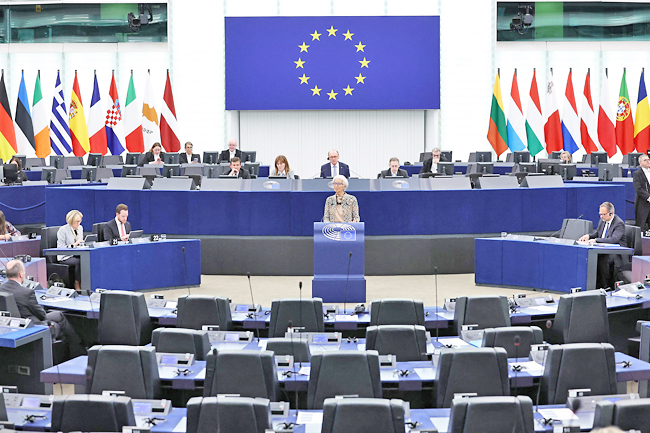FRANKFURT (AFP) – The European Central Bank (ECB) is expected to freeze interest rates again this week, with officials wary of starting to cut before they see more evidence that recent falls in inflation will be sustained.
After the ECB launched an unprecedented campaign of monetary tightening to tame runaway consumer prices, eurozone inflation has been slowing steadily from a peak of over 10 per cent in late 2022.
It eased to 2.6 per cent in February, according to preliminary figure, down from 2.8 per cent in January, and not far off the ECB’s two-per cent target.
At the same time the outlook is bleak, with the eurozone narrowly dodging a technical recession in the second half of 2023, weighed down by a poor performance in its biggest economy, Germany.
While slowing inflation and a worsening economy should bolster arguments for rate cuts, inflation’s downward path has been bumpy and officials remain worried about completing “the last mile” to the central bank’s target.

The Frankfurt-based ECB’s governing council is widely expected to hold the benchmark deposit rate steady at a record four per cent for a fourth straight meeting on Thursday.
The ECB “is in no rush”, Ann-Katrin Petersen from BlackRock Investment Institute told AFP.
“It still considers its inflation fight unfinished.”
Nevertheless, HSBC said that the “meeting will be closely watched by investors looking for any guidance on the timing of the first cut and the subsequent pace of easing”.
Investors will also be keeping an eye on the ECB’s updated forecasts due to be released alongside the rate decision, with a slight downward revision expected for this year’s GDP growth as well as inflation.
WAGE WORRIES
Inflation in the 20-nation eurozone surged in 2022 when the invasion of Ukraine sent food and energy costs soaring, with the situation compounded by pandemic-related supply chain woes.
While the shocks triggered by the Ukraine war have eased, concerns have shifted to inflation in the service sector and wage growth, as workers push for bumper pay rises to combat higher prices.
“With many pay negotiations outstanding, the ECB might want to see more evidence that wages are moving in the right direction,” said HSBC.
Heightened geopolitical tensions in the Middle East have also added to worries that inflation could rebound.





